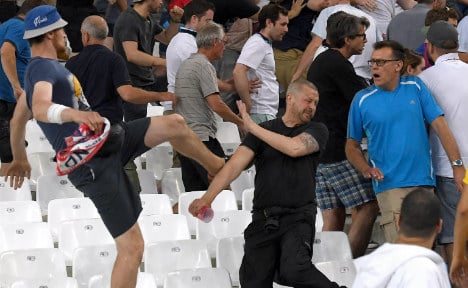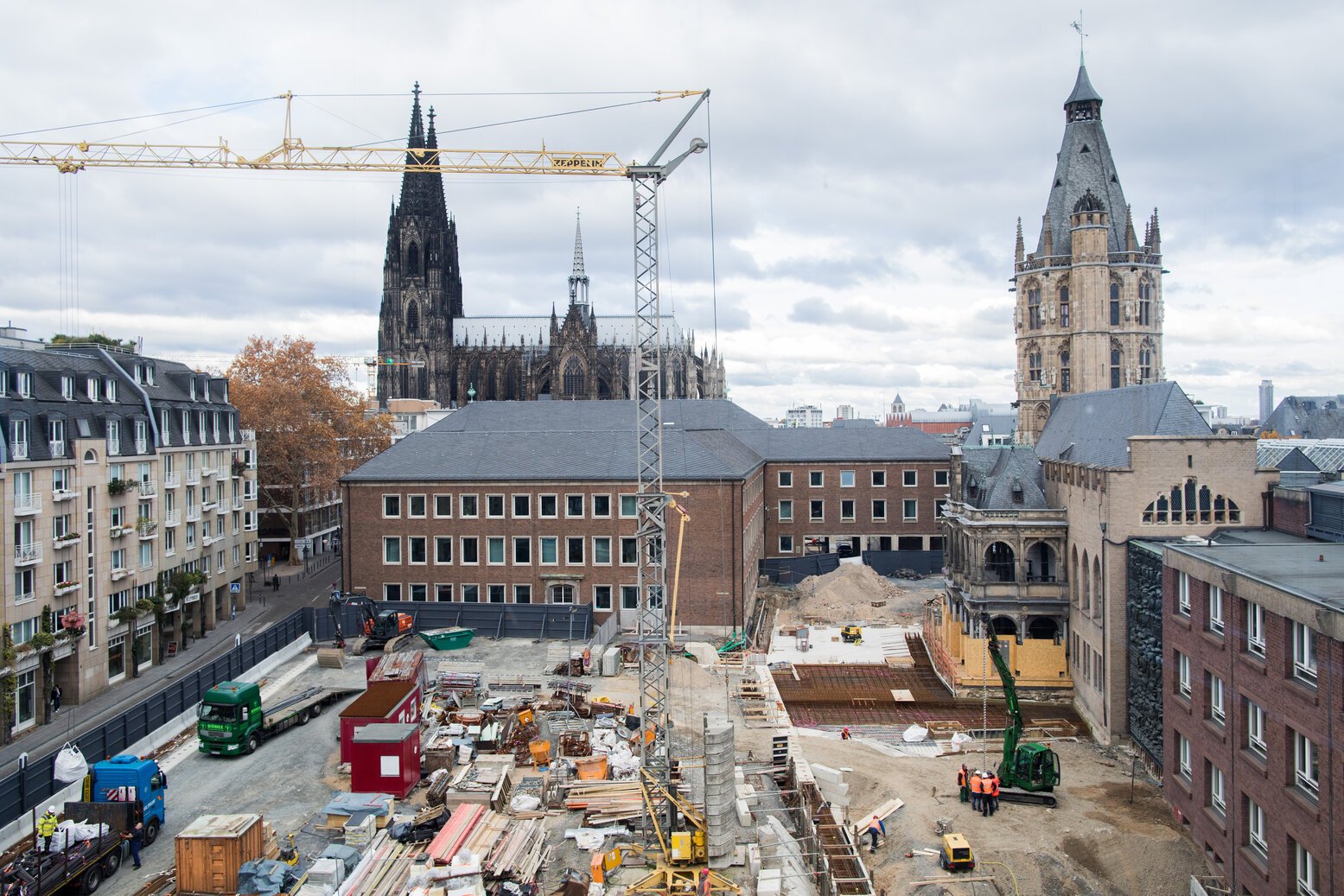HOOLIGANS
Russian hooligans jailed in Cologne for beating Spaniard
Five Russian football hooligans arrested in the German city of Cologne after attacking a group of Spanish tourists have been placed in custody, a police source said on Saturday.
Published: 18 June 2016 17:59 CEST

English fans clash with Russians on the stand. Photo: Daniel Dal Zennaro/ANSA
“A judge issued a warrant against the five men who have been placed in detention,” said a Cologne police spokesperson, adding that a sixth man had been released due to insufficient charges.
German police said the men acted in an “extremely aggressive and brutal manner” towards three Spanish nationals — two tourists and their guide — on Thursday.
The Russians “beat and kicked” their victims, leaving one seriously wounded, police said, without giving details on what sparked the attack.
The suspects aged 26 to 30 years were making a stop at the western city of Cologne after leaving Marseille, where the worst violence at an international tournament since the 1998 World Cup in France erupted last Saturday between Russian and English football thugs.
A French court on Thursday jailed three Russian football supporters over Euro 2016 fan unrest while a far-right Russian agitator was thrown out of the country.
Url copied to clipboard!


 Please whitelist us to continue reading.
Please whitelist us to continue reading.